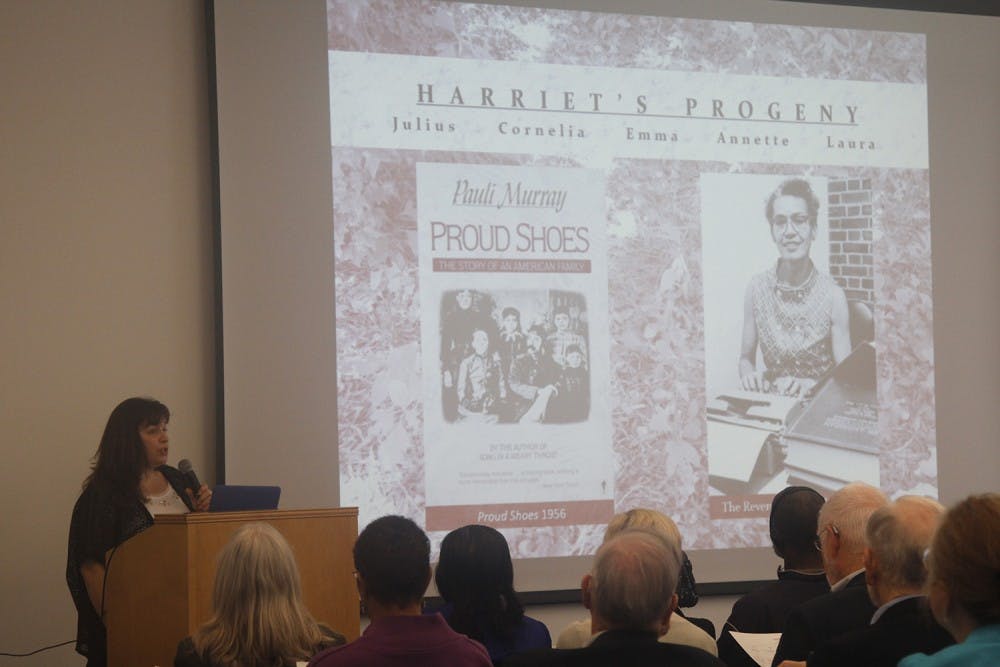Held at the Chapel Hill Public Library, the event featured speaker Kim Smith, a Duke University scholar who spent three years researching Harriet Smith and her family. The exhibit, called Harriet’s Progeny, gave voice to five African-American families — Harriet’s descendents — who were silenced by slavery.
“I pronounce their names slowly because they have been forgotten and I hope when you leave here, you will remember them,” Smith said.
Sarah Geer, president of the Chapel Hill Historical Society, opened the presentation by discussing the memoir that sparked Kim Smith’s interest, “Proud Shoes: The Story of an American Family.”
“This book tells the story of (Harriet Smith’s) family from slavery to her remarkable success,” Geer said.
“Proud Shoes,” written by Pauli Murray, tells the tale of Harriet Smith’s oldest daughter, Cornelia.
“Three years ago I hadn’t even heard of Harriet and then I took a class and read her book and was completely moved beyond words after that,” Smith said.
Smith’s presentation included timelines, letters written between family members, pictures of the house the family grew up in and personal anecdotes she gathered — all of which highlight the inequality and poor treatment African-Americans and people with mixed racial backgrounds experienced during the 1800s.
Throughout the presentation, the crowd was engaged with the complex and convoluted timeline and history of the family that Smith pieced together.




